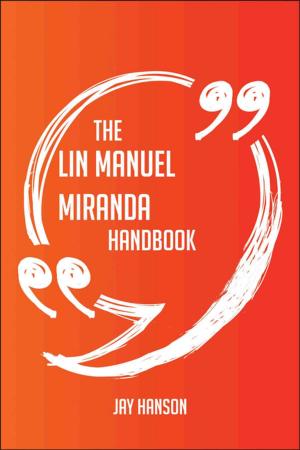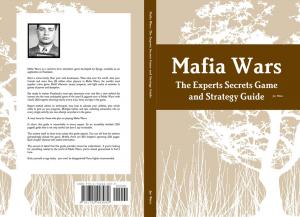Solomon and Solomonic Literature - The Original Classic Edition
Nonfiction, Reference & Language, Reference, Fiction & Literature| Author: | Moncure Daniel Conway | ISBN: | 9781486498888 |
| Publisher: | Emereo Publishing | Publication: | March 14, 2013 |
| Imprint: | Emereo Publishing | Language: | English |
| Author: | Moncure Daniel Conway |
| ISBN: | 9781486498888 |
| Publisher: | Emereo Publishing |
| Publication: | March 14, 2013 |
| Imprint: | Emereo Publishing |
| Language: | English |
Finally available, a high quality book of the original classic edition of Solomon and Solomonic Literature. It was previously published by other bona fide publishers, and is now, after many years, back in print.
This is a new and freshly published edition of this culturally important work by Moncure Daniel Conway, which is now, at last, again available to you.
Get the PDF and EPUB NOW as well. Included in your purchase you have Solomon and Solomonic Literature in EPUB AND PDF format to read on any tablet, eReader, desktop, laptop or smartphone simultaneous - Get it NOW.
Enjoy this classic work today. These selected paragraphs distill the contents and give you a quick look inside Solomon and Solomonic Literature:
Look inside the book:
“It was in my heart to build an house to the name of Jahveh my God; but the word of Jahveh came to me, saying: ‘Thou shalt not build an house unto my name, because thou hast shed much blood upon the earth in my sight; behold a son shall be born unto thee who shall be a man of rest, and I will give him rest from all his enemies round about: for his name shall be Solomon Peaceful, and I will give peace and quietness unto Israel in his days: he shall build an house for my name: and he shall be my son, and I will be his father; and I will establish the throne of his kingdom over Israel for ever.’” ...With regard to the above parallelisms I submit that one of them, at least,—the Judgment of Solomon,—is neither trivial nor based in simple facts, and could not have originated independently of the Indian tale; that the others, though each, if it stood alone, might be a mere coincidence, are too numerous to be so explained; that the time and conditions which rendered it possible that the names of the apes and peacocks (1 Kings x. 22) imported by Solomon should be Indian proves the possibility of importations of tales from the same country.
About Moncure Daniel Conway, the Author:
After graduation from Harvard University, Conway accepted a call to the First Unitarian Church of Washington, D.C., where he was ordained in 1855, but his anti-slavery views brought about his dismissal in 1856. ...After the Civil War broke out, Conway located (in Washington, DC) several dozen of his father's slaves who had fled from Virginia, and escorted them through Maryland - still a slave state - to safety in Ohio.
Finally available, a high quality book of the original classic edition of Solomon and Solomonic Literature. It was previously published by other bona fide publishers, and is now, after many years, back in print.
This is a new and freshly published edition of this culturally important work by Moncure Daniel Conway, which is now, at last, again available to you.
Get the PDF and EPUB NOW as well. Included in your purchase you have Solomon and Solomonic Literature in EPUB AND PDF format to read on any tablet, eReader, desktop, laptop or smartphone simultaneous - Get it NOW.
Enjoy this classic work today. These selected paragraphs distill the contents and give you a quick look inside Solomon and Solomonic Literature:
Look inside the book:
“It was in my heart to build an house to the name of Jahveh my God; but the word of Jahveh came to me, saying: ‘Thou shalt not build an house unto my name, because thou hast shed much blood upon the earth in my sight; behold a son shall be born unto thee who shall be a man of rest, and I will give him rest from all his enemies round about: for his name shall be Solomon Peaceful, and I will give peace and quietness unto Israel in his days: he shall build an house for my name: and he shall be my son, and I will be his father; and I will establish the throne of his kingdom over Israel for ever.’” ...With regard to the above parallelisms I submit that one of them, at least,—the Judgment of Solomon,—is neither trivial nor based in simple facts, and could not have originated independently of the Indian tale; that the others, though each, if it stood alone, might be a mere coincidence, are too numerous to be so explained; that the time and conditions which rendered it possible that the names of the apes and peacocks (1 Kings x. 22) imported by Solomon should be Indian proves the possibility of importations of tales from the same country.
About Moncure Daniel Conway, the Author:
After graduation from Harvard University, Conway accepted a call to the First Unitarian Church of Washington, D.C., where he was ordained in 1855, but his anti-slavery views brought about his dismissal in 1856. ...After the Civil War broke out, Conway located (in Washington, DC) several dozen of his father's slaves who had fled from Virginia, and escorted them through Maryland - still a slave state - to safety in Ohio.















